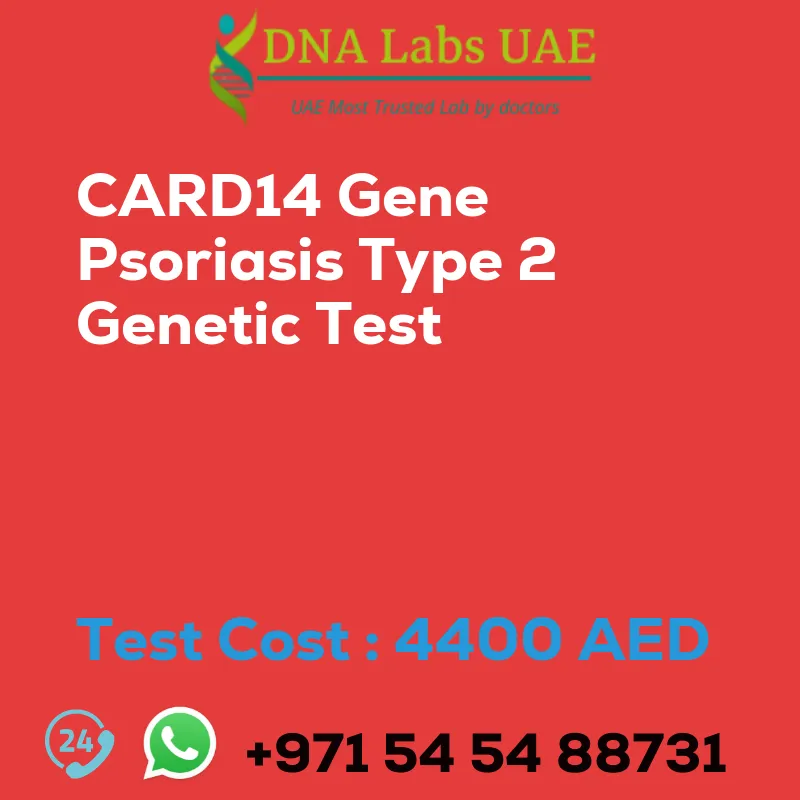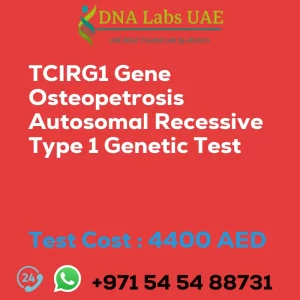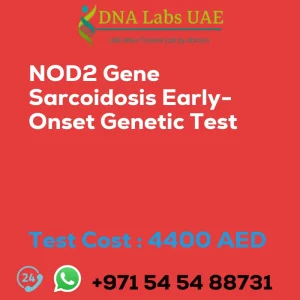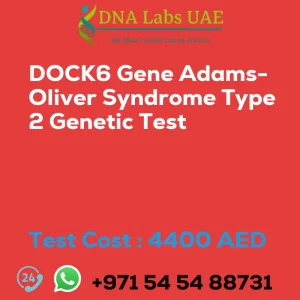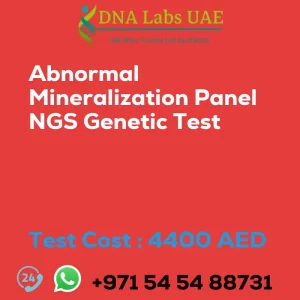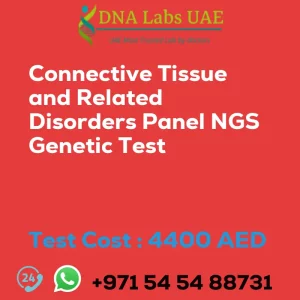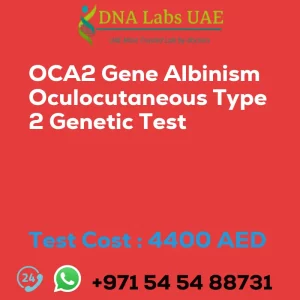CARD14 Gene Psoriasis type 2 Genetic Test
Are you or a loved one suffering from psoriasis type 2? Genetic testing can provide valuable insights into the underlying genetic factors contributing to the development of this chronic skin condition. At DNA Labs UAE, we offer the CARD14 Gene Psoriasis type 2 Genetic Test to help individuals better understand their genetic risk factors and guide treatment decisions.
Test Name: CARD14 Gene Psoriasis type 2 Genetic Test
Components: CARD14 gene analysis
Price: AED 4400.0
Sample Condition: Blood or Extracted DNA or One drop Blood on FTA Card
Report Delivery: 3 to 4 Weeks
Method: NGS Technology
Test type: Osteology Dermatology Immunology Disorders
Doctor: Dermatologist
Test Department: Genetics
Pre Test Information
Before undergoing the CARD14 Gene Psoriasis type 2 Genetic Test, it is important to provide the clinical history of the patient. Additionally, a Genetic Counselling session will be conducted to draw a pedigree chart of family members affected by the CARD14 gene. This information will help in the accurate interpretation of the test results.
Test Details
The CARD14 gene is responsible for producing a protein involved in the immune system’s response to inflammation. Mutations in this gene have been linked to the development of psoriasis, a chronic skin condition characterized by red, itchy, and scaly patches on the skin. Psoriasis type 2 specifically refers to a subtype influenced by genetic factors.
Our NGS (Next-Generation Sequencing) genetic testing method allows for the simultaneous analysis of multiple genes, providing a comprehensive assessment of an individual’s genetic makeup. In the context of psoriasis type 2, NGS genetic testing can identify mutations or variations in the CARD14 gene that may contribute to the development of the condition.
By undergoing the CARD14 Gene Psoriasis type 2 Genetic Test, individuals with suspected or confirmed psoriasis type 2 can gain a better understanding of their genetic risk factors. This information can guide treatment decisions and provide insight into the likelihood of passing the condition on to future generations.
Don’t let psoriasis type 2 control your life. Take control by understanding your genetic risk factors with our CARD14 Gene Psoriasis type 2 Genetic Test. Contact DNA Labs UAE today to schedule your test and start your journey towards better management of this chronic skin condition.
| Test Name | CARD14 Gene Psoriasis type 2 Genetic Test |
|---|---|
| Components | |
| Price | 4400.0 AED |
| Sample Condition | Blood or Extracted DNA or One drop Blood on FTA Card |
| Report Delivery | 3 to 4 Weeks |
| Method | NGS Technology |
| Test type | Osteology Dermatology Immunology Disorders |
| Doctor | Dermatologist |
| Test Department: | Genetics |
| Pre Test Information | Clinical History of Patient who is going for CARD14 Gene Psoriasis type 2 NGS Genetic DNA Test. A Genetic Counselling session to draw a pedigree chart of family members affected with CARD14 Gene Psoriasis type 2 NGS Genetic DNA Test gene CARD14 |
| Test Details |
The CARD14 gene is a gene that provides instructions for making a protein involved in the immune system’s response to inflammation. Mutations in the CARD14 gene have been associated with the development of psoriasis, a chronic skin condition characterized by red, itchy, and scaly patches on the skin. Psoriasis type 2 refers to a specific subtype of psoriasis that is believed to be influenced by genetic factors. NGS (Next-Generation Sequencing) genetic testing is a method used to analyze multiple genes simultaneously, allowing for a comprehensive assessment of an individual’s genetic makeup. In the context of psoriasis type 2, NGS genetic testing can identify mutations or variations in the CARD14 gene that may contribute to the development of the condition. By undergoing NGS genetic testing for the CARD14 gene, individuals with suspected or confirmed psoriasis type 2 can gain a better understanding of their genetic risk factors. This information can be useful in guiding treatment decisions, as well as providing insight into the likelihood of passing the condition on to future generations. |

